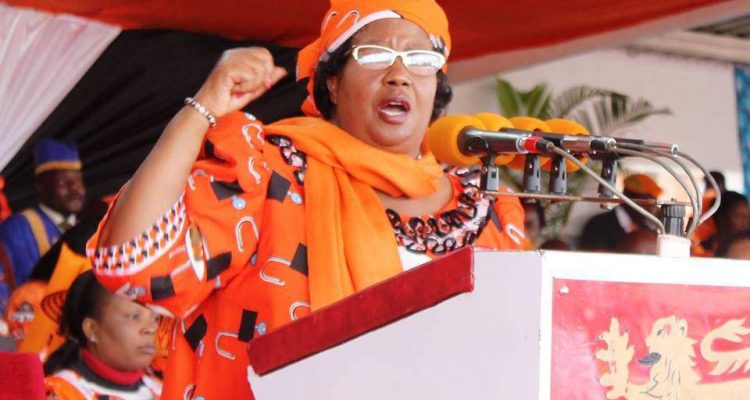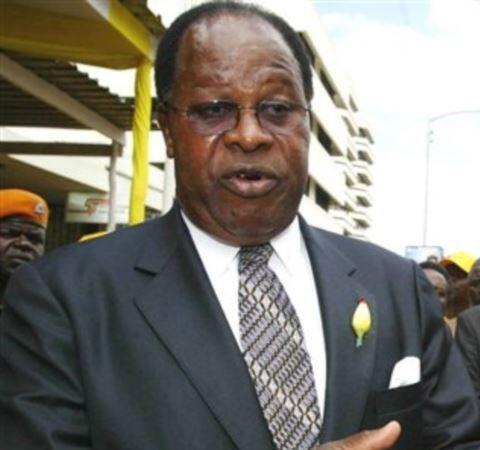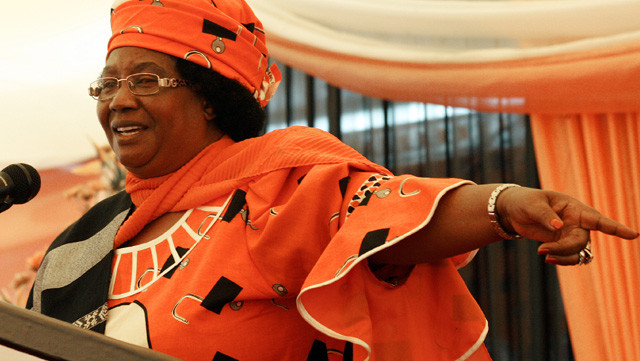
It is an interesting cycle. Just after twenty years from change, politics is going back to the starting point, yet again. This is a history that has to be emphasized because this is where the modern Malawi is built from: After three decades of one party rule, Malawi went to the polls and rejected the system.
It was not a change that happened in isolation. The end of Cold War is one of the major external factors that shook Dr. Kamuzu Banda and the Malawi Congress Party (MCP). Subsequently, they lost power from an inspired internal movement that ushered in Dr. Bakili Muluzi and the United Democratic Front (UDF) as the new political and governance mandate bearers in 1994.

The 1994 elections, although participated by a host of parties, including former exiled politicians, created an informal three party system that included the former ruling party, the then ruling party and the Alliance for Democracy (AFORD). These were the top three leading parties in the elections and dominated politics for the next twelve years.
The battle was between MCP and UDF, with AFORD largely being used as a pawn in the play. When his prescribed two terms was coming to an end in 2004, President Muluzi abandoned the democratic promise he had championed and asked for a third term, then an open term, through the National Assembly. But with serious governance and economic challenges Malawi was going through, he did not succeed in his attempt.
The country experienced the largest political activism since the ousting of Dr. Banda. Politics around this period fragmented our party system. Other parties mushroomed as we were approaching the third General Elections in 2004. UDF won the elections. But more interesting is the performance of MCP. Despite being out of power for a decade then, it remained a force to reckon with.
And so was in the other following General Elections, 2009 and 2014. The party has fought against the wind and poised itself as a potential government. But a look at the strength of the parties it competed with throughout the elections opens us up to the future. UDF has merged with the present ruling party, the Democratic Progressive Party (DPP), and that has rendered it ineffective.
AFORD has had internal fatal divisions and is no longer as powerful as it was. The People’s Party (PP), the front runner in the 2014 General Elections, due to its then ruling party privilege, is in a desolate state after being abandoned by its founder and President, Joyce Banda. MCP has still maintained its political shape and stands as a serious potential government.

As 2019 approaches, the battle for the votes is between MCP and DPP. But there is a huge difference in these two parties. DPP may be enjoying support from its state as a ruling party, but outside this privilege, it can no longer be. Started by the late President Bingu wa Mutharika and now being led by his brother and President, Peter Mutharika, the party is yet to undergo a serious internal democratic challenge.
In 2009 Bingu wa Mutharika was unanimously chosen as the presidential candidate, without any opposition. In the run up to 2014 elections, Peter Mutharika was undemocratically promoted as the next party leader and State President. Its leadership has solely been based on characters and not structures. And that is a recipe for disaster. That makes its hold on power to be unsustainable.
In the event that it loses power in 2019, expect a party that will face serious struggles. Since it has no strong structures for choosing its leaders, the expectation that it will come out from this strong is minimal. But with MCP keeping itself in shape throughout the two decades it has been out of power, expect it to further be strengthened when it gets into power.
See it before it happens. Malawi is once again about to become a ‘one party state’ in 2019 with MCP. The main reason for this will the failure by the parties that led in the period to be democrats within themselves. It has been a time characterized by individuals and not sustainable party structures, a quality that MCP has consistently been showing.
*Views in this post are those of the author and DO NOT reflect those of this publication.
About the author: Wonderful Mkhutche is a professional speech writer, a political scientist and a manuscript editor and developer















zizaoneka nhawi yomweyp koma ine ndimkonda DPP basi.
Better one party that will see the development and welfare of Malawians than having multiparty whose end results are cash gate, maize gate and and Njaunju gate.
Do They Thick Malawians Are Fools That They Ganna Accept Everythin.
Do They Thick Malawians Are Fools That They Ganna Accept Everythin.
MCP is the party its leaders lack vision. The ideology of the party is the results you see today.
In Democratic government everyone has the party to choose not centered on whether the party will end or not. The united you’re, you stand. Division is weakness.
Let me encourage you MCP leaders if possible change the name of the party or change the ideology you’re in now.
The party faces no support coz of it’s past events.
Never
GOOD EVENING MADAMA.
DPP ndiye chipani cha chitukuko mu Malawi.PP ndi chipani cha gate mu Malawi.MCP yinayiwala chiyani boma pa zaka 31 tikawatengere chifukwa ali ndi nzeru za ukalamba wosati za chitukuko ayi.
Mujantcha iwe MCP boma
We are tired with politicians can leave to bother us please
IDIOTS
love Dpp
Dpp will penetrate in 2019 up to 2029 thays agood dream
Dpp maize gate party simungawine too corrupt
The writer is just focusing his prediction in central region which is the headquarters of MCP. Think of southern region which is also the headquarters of DPP and has more population as compared to the other regions. Watch out for the land slide votes for DPP in 2019
Kikkkkkki dats pointless, even a blind can see we have one party rule which is DPP even if MCP win 2019 still will have one party rule,then comes with Opposition why are u talking like there is no other parties in Malawi,we have MCP its only u mama who weakness our beloved PP by hiding other country and talking like sensitive woman while ur like headless reader come to build our Party we need you love you mama and miss you
Whatever come let it,we do not care about one party or murtiparty:
That’s madness
Nde munkasinthiranji enao amazinva kuti anasintha zinthuo avomeranso,kulibe analowapo ndare ncholinga chisitha zinthu ayi,anali ndimaplan oti alemere basi and zikuwathekera
Nonsense
MCP ikhoza kubweretsadi umoyo wofewerapo kwa a Malawi.
Siyani kulota
There is one party in Malawi.no unique Ideals for parties.no loyalty to party Ideals.any politician can leave any party coz there is nothing to stay loyal to one party for.There is only the Idea of accumulating ill gotten wealth.In reality we are still under one party.this is not news
Ajawa awina after z ma id za xpry det
Ngakhale itankhala one party system there will be no change because the ministers will be the same.(omweo akalewo mpaka azamwalile)
Palobe zoti MCP kudzawina iwalani DPP ipita kuti
If some are dreaming that MCP will win 2019 elctn then you re not a good dreamer
Inu anthu andale musatipusisepo apa ayi dziko la Malawi ikusawuka kamba kayi inu ndinu anthu oyipa kwambiri mumatitenga anthufe osawuka ngati kondom.
Typing .. ……………..
Ngati mukufuna zimene muzaphe achinyamata onse nkusara ma gogos kapena ku malawi kusazabadwenso munthu mwina zitha kutheka
No cmmnt zapolitics ine sikwenikweni
Sell Malawi to three neighbouring countries
.
..
Zoti ife a youth azizatisambitsa matope chifukwa chokana kuimbira mbumba ng,oma ai takana
Ndi mbiri yakale imeyo.Dziko la Democracy kulibe zimenezo
Kkkkkkkkk!
Palibe
Tsono mwaikapo Tsinzina mtoleyo kuti wataninso
MCP is definately going to win but this time around Dpp will be in opposition along with other parties.
so there is nothing like one party rule Mr journalist!!
Tsono zugwirizana bwanji ndi Joyce
Dats great mum joyce banda
Q
Or zikhale chimozmoz ine ndikuonapa kusintha ngati
Comment loadind………
To hell with politicians
Wow
Overstretched imagination
I used to cry everyday thinking I will die of HIV virus. After 6 years of contacting the virus and taking Arvs, I came across an article of an herbal doctor who cured HIV/AIDS. I was terrified and decided to contact the doctor with the number provided.(+2347085071418). I saw other patients the doctor have cured and I got the herb and exactly after a month after I started taking the herb, I went for my monthly test and was completely negative. It was too good to be true that I did series of test in another hospital but the test results came out negative as well. With joy in my heart I share this testimony. If you need help just like me you can contact DR ABUMEN via email doctorabumen@gmail.com or whatsapp him on +2347085071418 thank you once again for your healing.
Ndiye akupatsa zambiritu. Uzilemba paliponse zakozi? By the way, sizikugwiridzana ndi mutu wa nkhani apa. Kupanda nzeru uku.
Takumva bola usasiye kumwa ma ARV coz ulinakobe kachilomboko
KKKKKK
This idiot sucks.
The system was much better…!
No nepotism, no corruption and no albino killers…!
MALAWI NDI MALAWI KAYA IDZAKHALA ONE PARTY OR MULT-PARTY SYSTEM, OSOLOLA, ACHIPHAZI & CORRUPT LEADERS ANALIPO, ALIPO& ADZAKHALAPO.
MCP will be the ruling gvt and DPP in opposition,does that mean one party rule?
Olo zitavuta maka koma MCP SIZALOWANSO BOMA
Democracy si zinthu…. Aphunzitsi akachedwa kulandira malipiro…ana a xul kuwononga katundu wa anthu omwe sizikuwakudza….. Boma likakhwimitsa malamulo a pa nsewu anthu akuphwanya ma police unit…. mu nthawi ya ulamuliro wa chipani chimodzi sidzimkachitika zimenezi
Am not a politics guy but am agree with you.
Kulemba nkhani kumafunikasotu mzeru . are u sure?
Same thing
mungovutika sitingabwerere ku one party system never
The heading and the contents of the story are NOT correlating though the story is good.
Mmmmmh Returnin 2 Ancient Time
Muzilemba muganiza 1party Rule inatha tifuna kuwona kusitha kwenikwene ndi MCP
Do we actually see the difference between the two in Malawi?